Why Does Measuring Gender Equality Matter for Foreign Policy?
Sarah Iqbal, World Bank Group's Women, Business and the Law project
Andria Hayes-Birchler, Millennium Challenge Corporation
Photos | Transcript
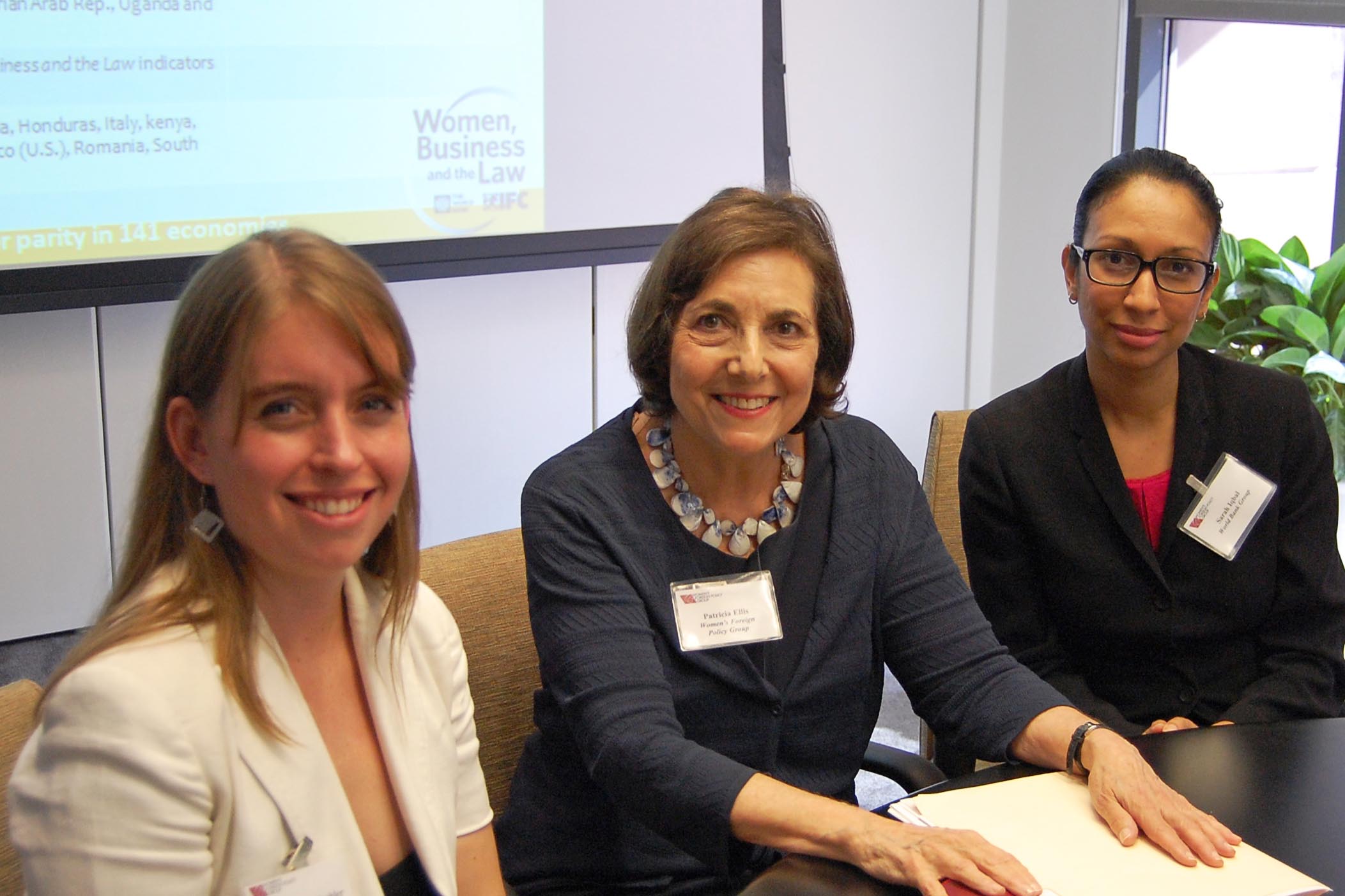 |
 |
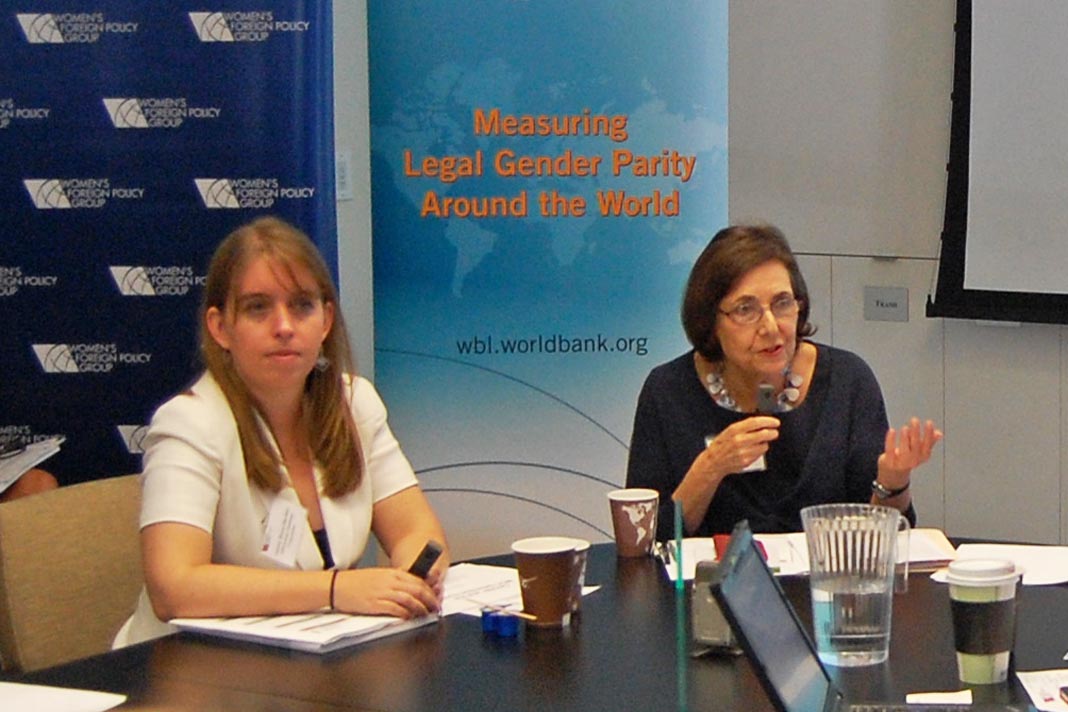 |
Speakers Andria Hayes-Birchler and Sarah Iqbal with
moderator Patricia Ellis
|
|
WFPG President Patricia Ellis introduces the program
|
Washington, DC—On October 5 2012, Sarah Iqbal, program officer at the Women, Business and the Law project at the World Bank, and Andria Hayes-Birchler, development policy officer at the Millennium Challenge Corporation, addressed the Women’s Foreign Policy Group on the importance of gender equality in foreign policy and stressed how economic barriers restrain gender equality and restrict female participation in civil society. The discussion was moderated by WFPG President Patricia Ellis.
The luncheon focused on the World Bank’s 2012 Women, Business and the Law report and how the data is used by MCC. The World Bank report measures legal differentiations based on gender in 141 economies around the world. The data covered six key areas, including accessing institutions, using property, getting a job, providing incentives to work, building credit, and going to court. The goal of the World Bank’s research and MCC’s work is to assess which countries have specific legal constraints on female entrepreneurship, and to use this information to encourage governments to improve their business environments for female entrepreneurs and business owners, both in the federal and private sector.
Sarah Iqbal explained the key findings in the research, noting that although no formal, legal differences exist between men and women in the workplace, there are laws that constrain women from participating in entrepreneurship that affect their treatment in the workplace. These restrictions are related particularly to property rights, legal capacity issues and family codes, and married women are the prime targets of these constraints.
Globally, women represent 49.6 % of the total population, but only 40.8 % of the total formal workforce. In some places where women are constrained from working or running businesses, half of the population is not able to work. The Middle East and North Africa is the region with the most gender gaps and lately there have been roll backs in female rights in some countries in the region, including Iran and Yemen. Iqbal affirmed that legal restrictions are not just related to under-developed countries or to low income groups—only 38 economies of 141 that the World Bank covers offer equal rights for both sexes in 45 key areas.
MCC is using the data from Women, Business and the Law when they work with countries to reduce their poverty through economic growth. With the use of the information from the World Bank report, the MCC has created a new indicator called “Gender and the Economy” which has broadened MCC’s gender focus when selecting countries for foreign assistance. MCC uses this data to determine which countries receive foreign assistance. Hayes-Birchler argued that it has been important for MCC to be able to track gender equality on the countries’ scorecard and keep them accountable for their differentiated policies even though the countries have been doing well on other indicators. In her words, “If women can’t participate in economic growth, then we have lost 50% of our potential beneficiaries. That has a huge effect on our ability to do good work.”
The World Bank report is mainly used to create awareness that laws constraining female entrepreneurship are on the books and do not track implementation. In fact, many governments are not aware that these gender restrictions are part of their laws, because they are implemented in family laws and traditional laws instead of business laws. By highlighting these constraints, the World Bank and MCC have made several governments eager to get assistance and cooperate with the World Bank and MCC in improving their laws and change legal restraints on women. Just during the past year, 36 economies out of 141 issued a total of 46 changes in their legislation. Of these, 41 were positive legal changes.
The countries used in the World Bank report are chosen on the basis on data availability and the ease of getting data, which excludes several small and lower-income countries, such as Afghanistan and Libya. The data in the World Bank report are collected through surveys answered by lawyers, members of civil society, judges and academics in these countries. Iqbal explained that the World Bank also uses lawyers and economists in DC who code the data and make sure that it is accurate, cross-country compatible, and understandable.
The next Women, Business and the Law report will be published in 2013 with updated data as well as with new areas of focus. These new areas will include how women’s entrepreneurship and employment are affected by laws against violence towards women, sexual harassment in the work place, harassment in public spaces, and domestic violence.
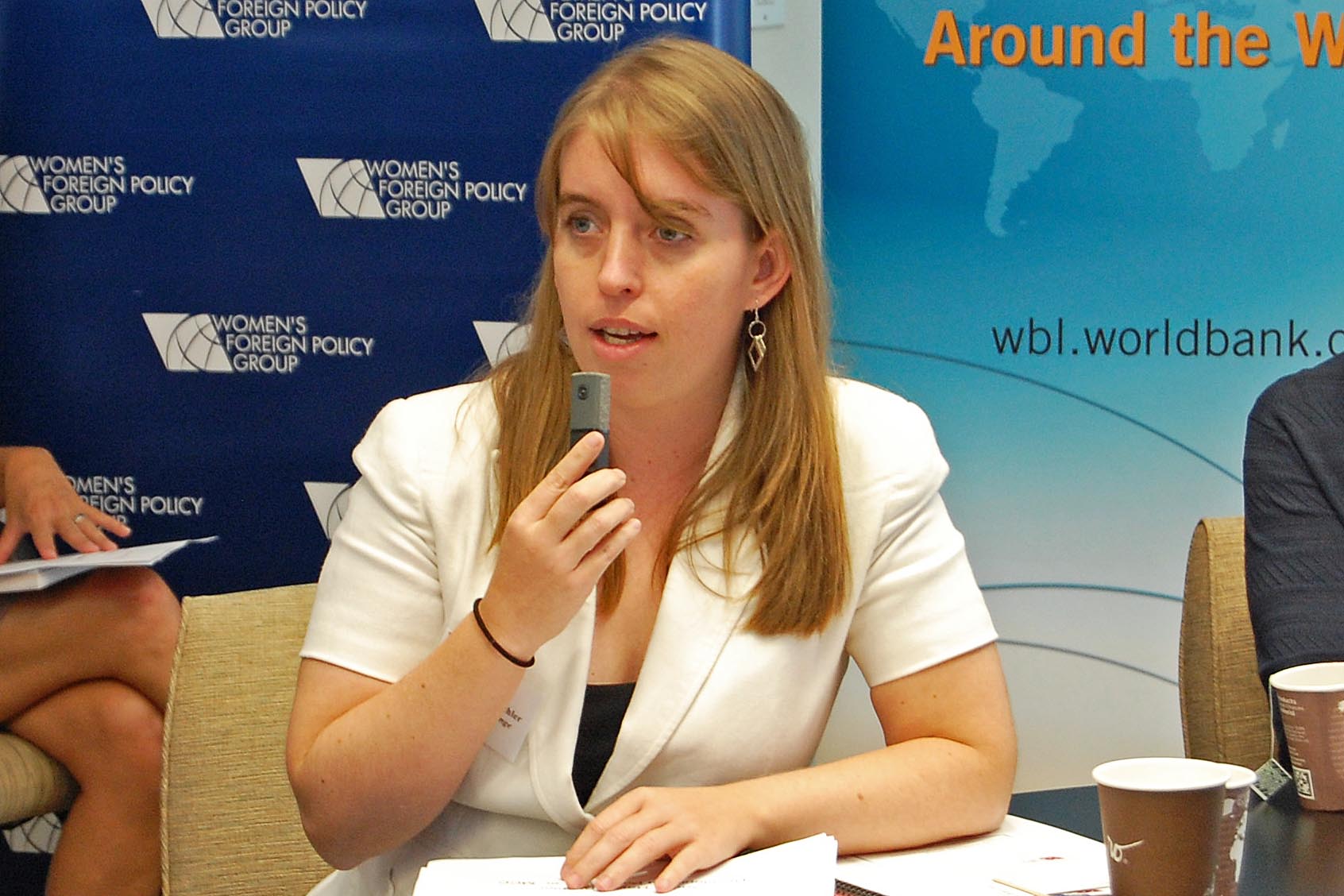 |
 |
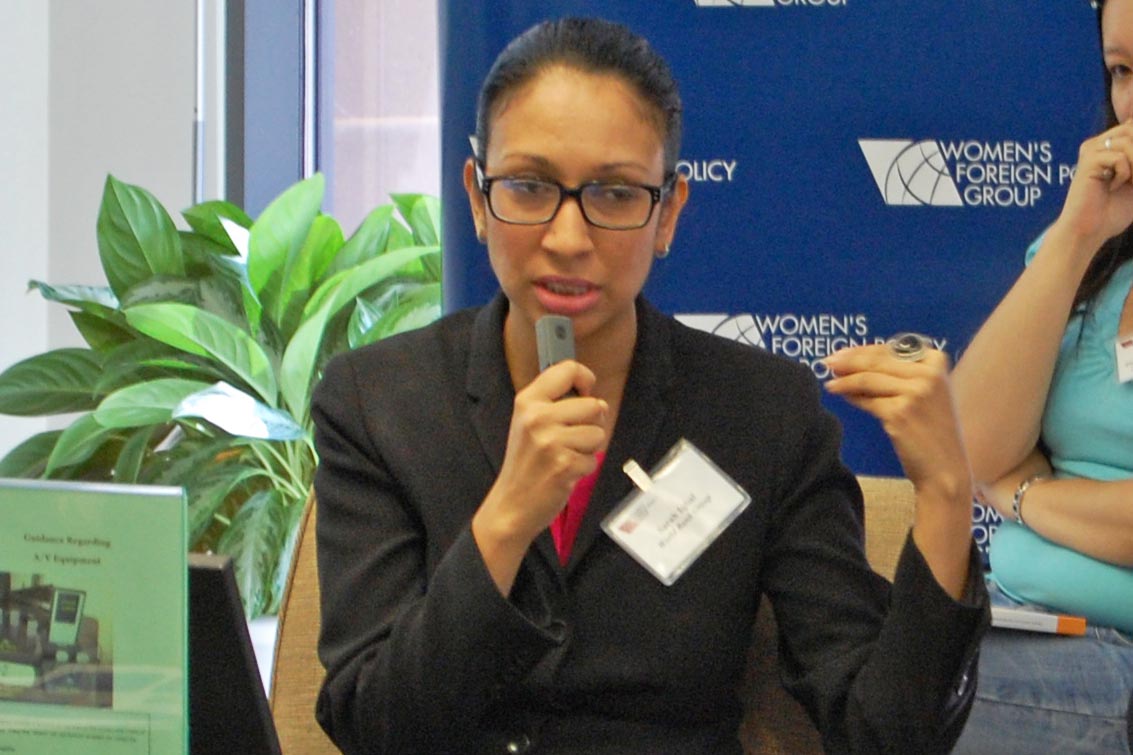 |
Andria Hayes-Birchler of the
Millennium Challenge Corporation
|
|
Sarah Iqbal of the World Bank Group's Women,
Business, and the Law project
|
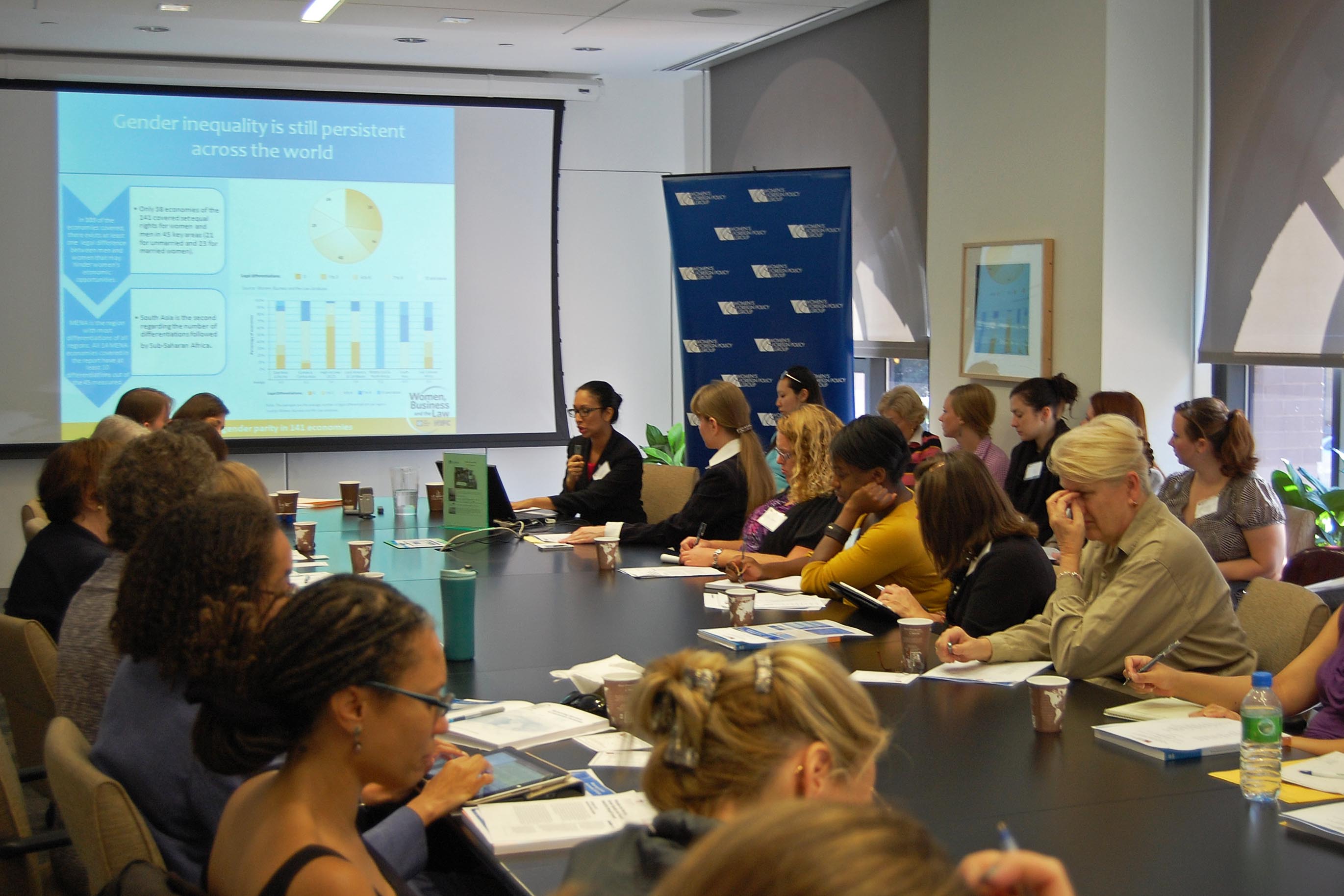 |
 |
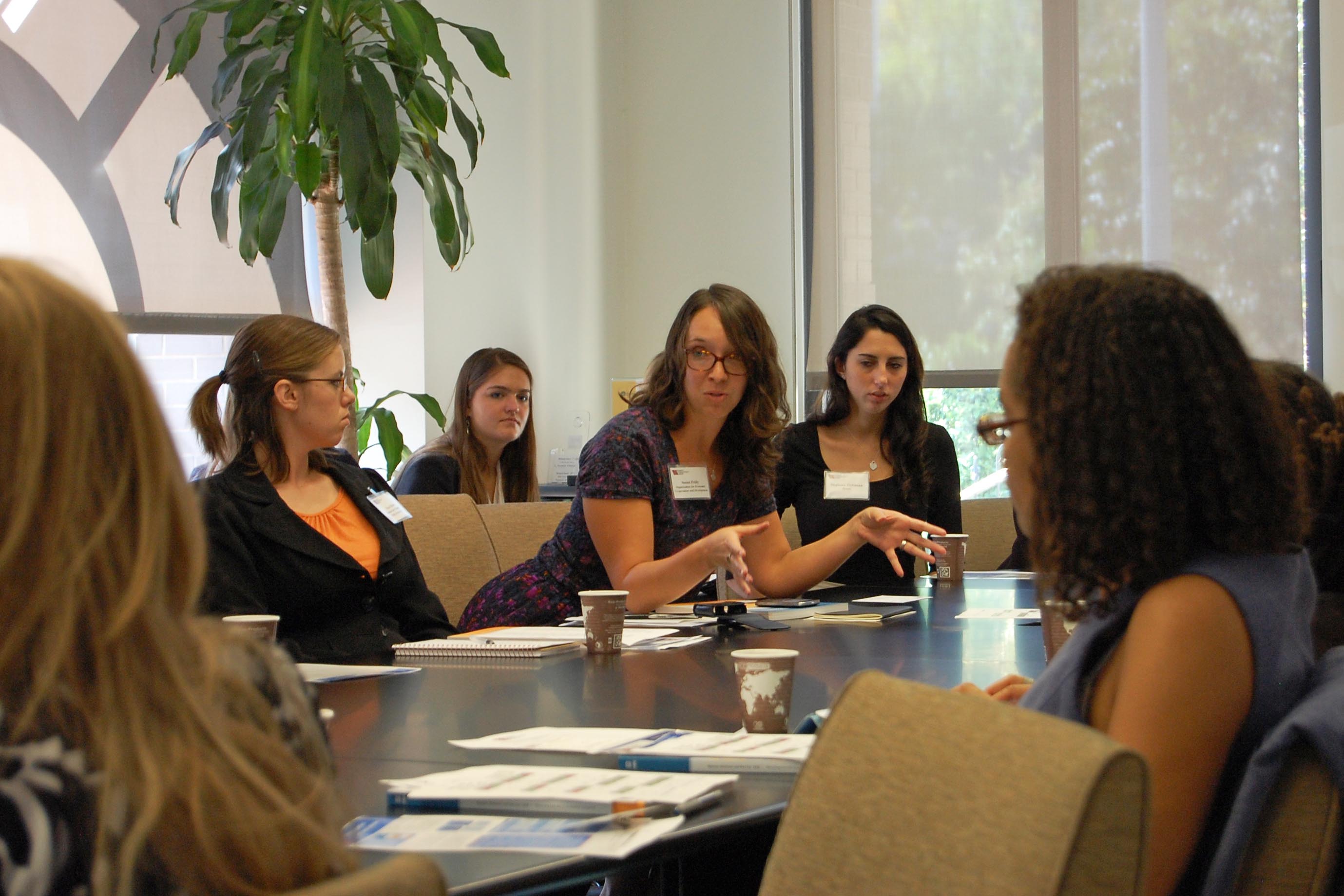 |
| |
|
|
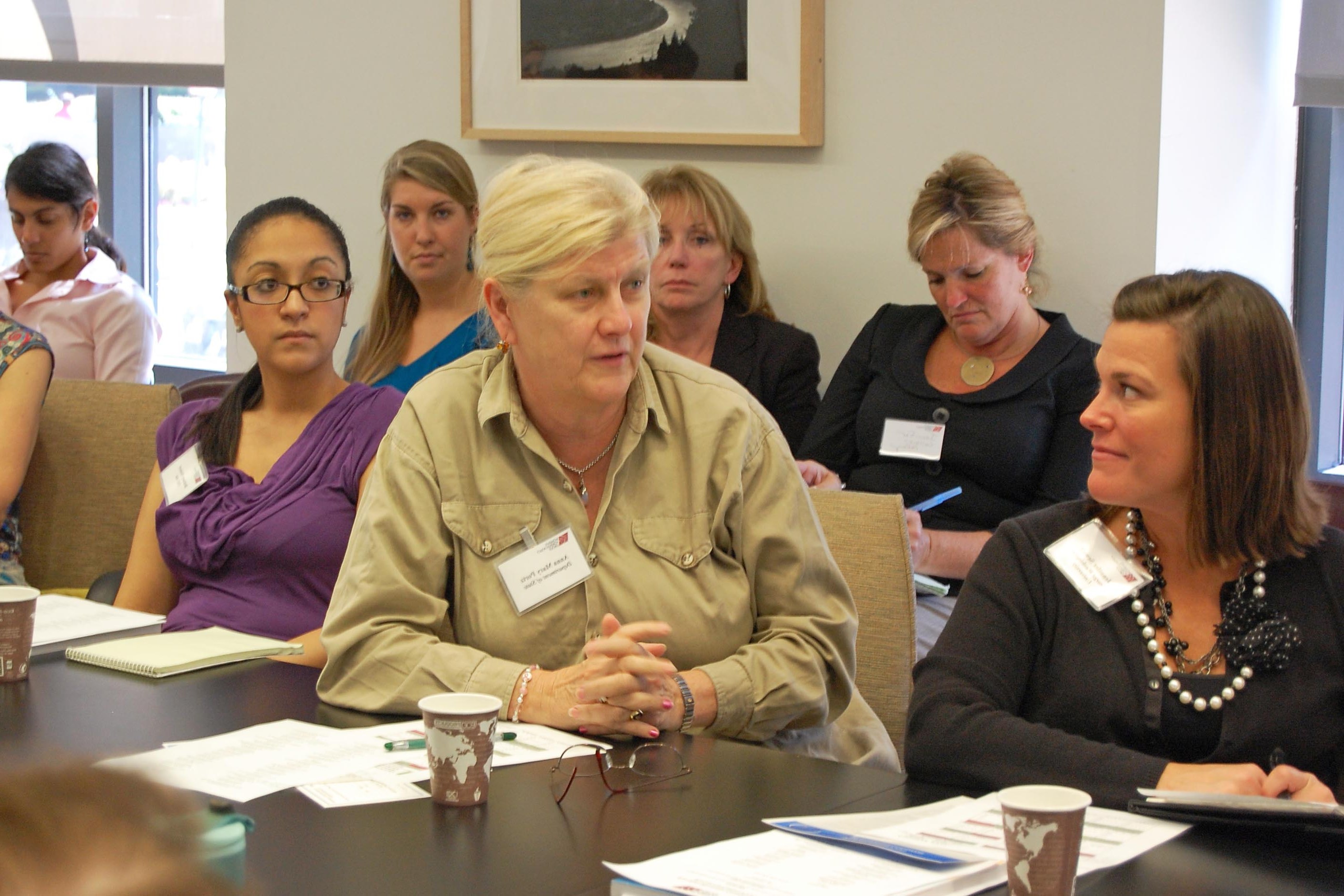 |
 |
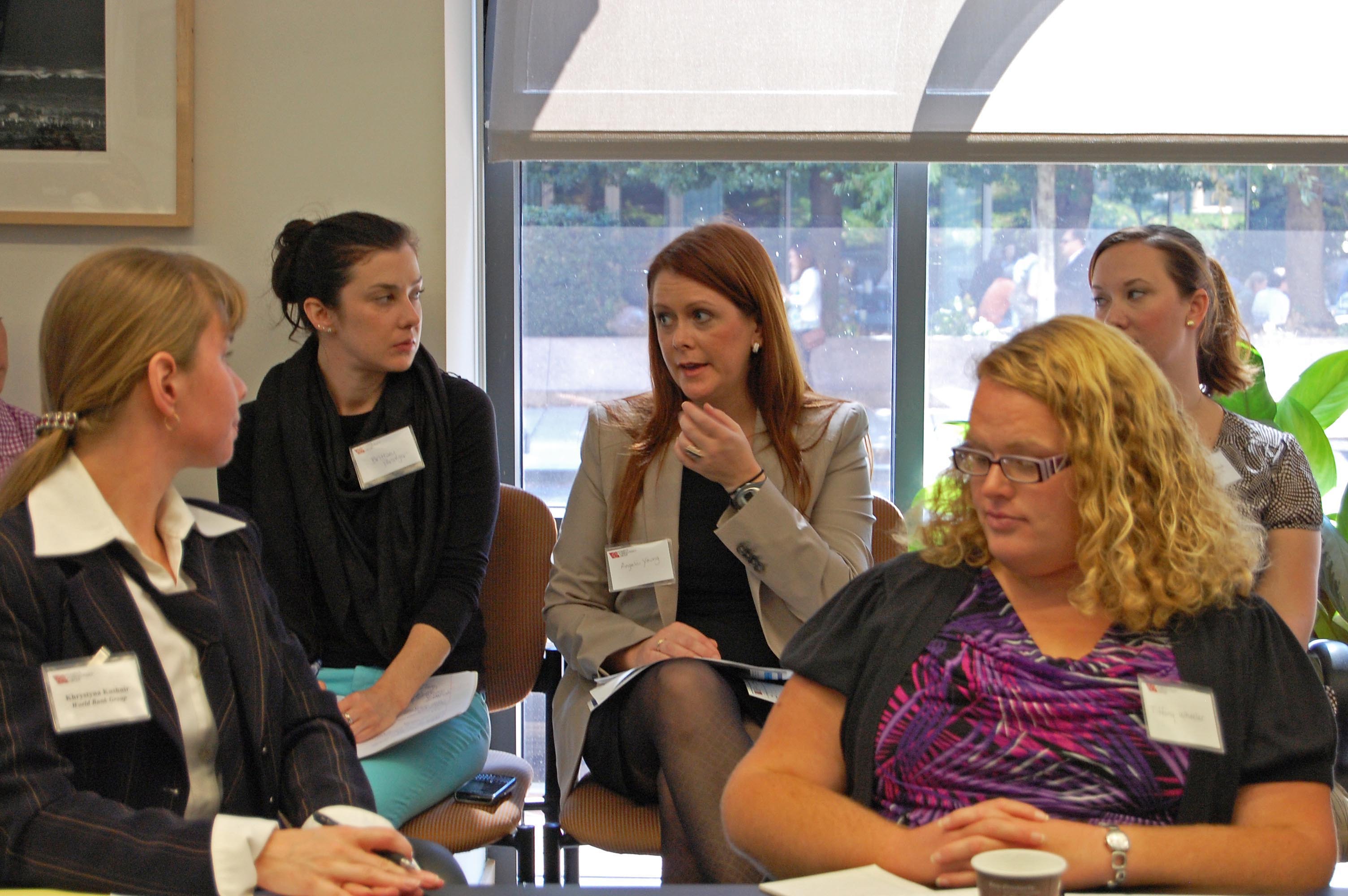 |
| |
|
|